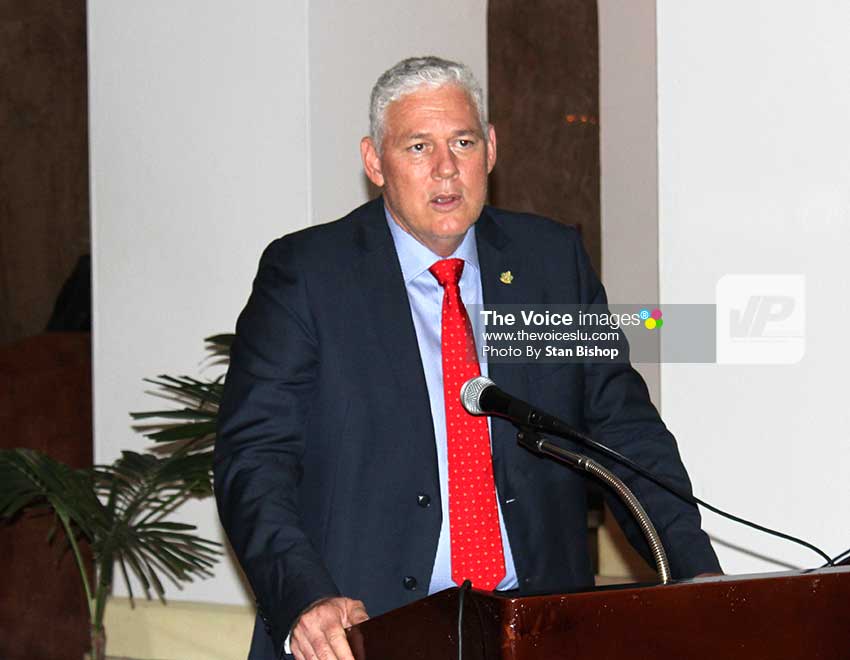PRESS RELEASE – YOUR Excellencies, this summer, the Caribbean confronted the realities of climate change. We have experienced firsthand what climate change looks like – Irma, José, and Maria. Not only have these storms decimated our countries and our economies, but they have also left our citizens and governments with a feeling of fear and helplessness — that the next hurricane season is only nine months away and that this process is far too slow for us.
What we have also realised is that time is against us. Climate change has the ability to annihilate my country overnight, as hurricanes are becoming more severe, causing ever more devastating impact.
The fallout from these events is massive. Lives are lost, infrastructure destroyed. Big, medium and small businesses are hit as well, which translates to loss of opportunity; losses that we couldn’t have imagined, but that we would have to suffer again and again in the future.
Displacement following such climate-induced disasters delivers another blow to our communities because those who leave are those who can afford to leave – community leaders, business people, teachers, sports coaches — and once they are forced to leave, it takes a long time for them to come back, and an even longer time for the country to regain that expertise, if ever, as might be the case for some low-lying island nations amongst us.
The Small Island Developing States (SIDS) have understood that we have run out of time and that drastic action must be taken immediately because nobody has found a way to ask for a pause until we, as a global community, can get our act together.
I call on developed countries to help SIDS help themselves. We cannot wait till 2020 to see finance to deal with the emergency situations, build resilience in our countries as far as possible, and the loss and damage that is already occurring.
Our people have proven to be, and will continue to be, resilient. But here, on the international level, I say to you: all it takes is a pen; a pen to create the policies to prioritise the resources; a pen to change the protocols used to disperse funds; a pen to change macroeconomic targets, realising that we cannot invest in resilience without putting our counties into deeper economic volatility. This means that the frameworks we have under this process must be sensitive to the urgent needs of SIDS and not simply wrapped up in bureaucracy.
There is clear scientific evidence that unless warming is kept below 1.5°C, SIDS will face further intolerable and existential threats. This is why we fought for 1.5°C in the Paris Agreement. Already, at 2°C, impacts will be catastrophic. But building resilience to climate impacts that will occur if we allow the planet to warm to 3.2°C is absolutely unimaginable because this is where we are heading with the Paris Agreement pledges on the table, with deadly implications for our nations.
I call on all governments to take urgent action to help SIDS deal with the climate change impacts – the most pressing issue of our time as alluded to by Chancellor Merkel and President Macron. I also want to recognise the UK, Canada, China, Japan, and others, for their efforts. This is not a time for politics. Despite the differences between China and Taiwan, and given the humanitarian impact of climate change, everyone deserves a voice. Let me remind you, climate change has no prejudice; it does not discriminate whether you are rich or poor, big or small.
We in the small islands are doing everything we can to show leadership in our transition to a low carbon economy. We are doing our part but our part does not allow us to control our own destiny. Extraordinary times call for extraordinary measures.
I want to acknowledge and recognise all the countries here again to show their solidarity and the importance they put on climate change.
I also want to thank the leaders of the developed countries that took time to come here to give us hope. But the most important words came from the young man from Fiji – Timoci — where he gave us a very clear description of how climate change has affected his community and more importantly, his family. So attending these meetings is no longer sufficient.
SIDS and least developed countries must unite and use the power of our voices within the UN over the next two years to support individuals and countries that are prepared to hear the voice of Timoci and who appreciate the sense of helplessness and fear that we have as leaders as to what the future holds for us.
Let us, collectively, show solidarity with SIDS, and particularly vulnerable developing countries, so that this island COP can go down in history as being the COP where the world demonstrated that it cared and where it was willing to do the right thing. No more excuses, no more bureaucracy — just urgent action — NOW.





![Simón Bolívar - Liberator of the Americas [Photo credit: Venezuelan Embassy]](https://thevoiceslu.com/wp-content/uploads/2025/12/Simon-Bolivar-feat-2-380x250.jpg)



